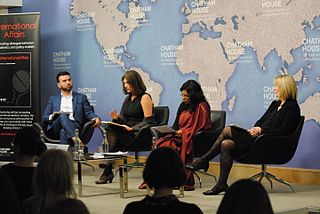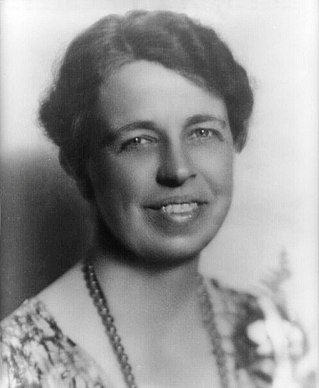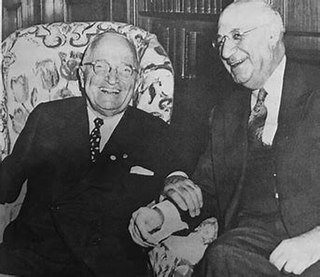
Human rights are moral principles, or norms, for certain standards of human behaviour and are regularly protected as substantive rights in substantive law, municipal and international law. They are commonly understood as inalienable, fundamental rights "to which a person is inherently entitled simply because she or he is a human being" and which are "inherent in all human beings", regardless of their age, ethnic origin, location, language, religion, ethnicity, or any other status. They are applicable everywhere and at every time in the sense of being universal, and they are egalitarian in the sense of being the same for everyone. They are regarded as requiring empathy and the rule of law, and imposing an obligation on persons to respect the human rights of others; it is generally considered that they should not be taken away except as a result of due process based on specific circumstances.

The Office of the United Nations High Commissioner for Human Rights, commonly known as the Office of the High Commissioner for Human Rights (OHCHR) or the United Nations Human Rights Office, is a department of the Secretariat of the United Nations that works to promote and protect human rights that are guaranteed under international law and stipulated in the Universal Declaration of Human Rights of 1948. The office was established by the United Nations General Assembly on 20 December 1993 in the wake of the 1993 World Conference on Human Rights.

The Universal Declaration of Human Rights (UDHR) is an international document adopted by the United Nations General Assembly that enshrines the rights and freedoms of all human beings. Drafted by a UN committee chaired by Eleanor Roosevelt, it was accepted by the General Assembly as Resolution 217 during its third session on 10 December 1948 at the Palais de Chaillot in Paris, France. Of the 58 members of the United Nations at the time, 48 voted in favour, none against, eight abstained, and two did not vote.

The International Covenant on Civil and Political Rights (ICCPR) is a multilateral treaty that commits nations to respect the civil and political rights of individuals, including the right to life, freedom of religion, freedom of speech, freedom of assembly, electoral rights and rights to due process and a fair trial. It was adopted by United Nations General Assembly Resolution 2200A (XXI) on 16 December 1966 and entered into force on 23 March 1976 after its thirty-fifth ratification or accession. As of June 2022, the Covenant has 173 parties and six more signatories without ratification, most notably the People's Republic of China and Cuba; North Korea is the only state that has tried to withdraw.
John Peters Humphrey was a Canadian legal scholar, jurist, and human rights advocate. He is most famous as the principal author of the first draft of the Universal Declaration of Human Rights.
The United Nations Prizes in the Field of Human Rights were instituted by United Nations General Assembly in 1966. They are intended to "honour and commend people and organizations which have made an outstanding contribution to the promotion and protection of the human rights embodied in the Universal Declaration of Human Rights and in other United Nations human rights instruments".
Anne Bayefsky, born 8 November 1953, is a lawyer, scholar and activist who currently directs the Touro College Institute on Human Rights and the Holocaust. She is a Fox News opinion writer, and an author and editor on several websites.

Fionnuala Ní Aoláin is an Irish academic lawyer specialising in human rights law. She was the Special Rapporteur on the promotion and protection of human rights and fundamental freedoms while countering terrorism for the United Nations Human Rights Council from August 1, 2017 - November 2023.

The United States Commission on International Religious Freedom (USCIRF) is a U.S. federal government commission created by the International Religious Freedom Act (IRFA) of 1998. USCIRF Commissioners are appointed by the President and the leadership of both political parties in the Senate and the House of Representatives. USCIRF's principal responsibilities are to review the facts and circumstances of violations of religious freedom internationally and to make policy recommendations to the President, the Secretary of State, and the Congress.

Sir Nigel Simon Rodley KBE was an international lawyer and professor.

UN Watch is a Geneva-based non-governmental organization (NGO) whose stated mission is "to monitor the performance of the United Nations by the yardstick of its own Charter". It is an accredited NGO in Special Consultative Status to the UN Economic and Social Council and an Associate NGO to the UN Department of Public Information.

Anna Eleanor Roosevelt was an American political figure, diplomat, and activist. She was the first lady of the United States from 1933 to 1945, during her husband President Franklin D. Roosevelt's four terms in office, making her the longest-serving first lady of the United States. Through her travels, public engagement, and advocacy, she largely redefined the role of First Lady. Roosevelt then served as a United States Delegate to the United Nations General Assembly from 1945 to 1952, and took a leading role in designing the text of the Universal Declaration of Human Rights. In 1948 she was given a standing ovation by the assembly upon their adoption of the Declaration. President Harry S. Truman later called her the "First Lady of the World" in tribute to her human rights achievements.
The Universal Declaration of Human Rights was drafted between early 1947 and late 1948 by a committee formed by the United Nations Commission on Human Rights. Further discussion and amendments were made by the Commission on Human Rights, the Economic and Social Council and the General Assembly of the United Nations.
Defamation of religion is an issue that was repeatedly addressed by some member states of the United Nations (UN) from 1999 until 2010. Several non-binding resolutions were voted on and accepted by the UN condemning "defamation of religion". The motions, sponsored on behalf of the Organization of the Islamic Conference (OIC), now known as the Organisation of Islamic Cooperation, sought to prohibit expression that would "fuel discrimination, extremism and misperception leading to polarization and fragmentation with dangerous unintended and unforeseen consequences". Religious groups, human rights activists, free-speech activists, and several countries in the West condemned the resolutions arguing they amounted to an international blasphemy law. Critics of the resolutions, including human rights groups, argued that they were used to politically strengthen domestic anti-blasphemy and religious defamation laws, which are used to imprison journalists, students and other peaceful political dissidents.

The International Convention on the Elimination of All Forms of Racial Discrimination (ICERD) is a United Nations convention. A third-generation human rights instrument, the Convention commits its members to the elimination of racial discrimination and the promotion of understanding among all races. The Convention also requires its parties to criminalize hate speech and criminalize membership in racist organizations.

Agnès Callamard is a French human rights activist who is the Secretary General of Amnesty International. She was previously the Special Rapporteur on extrajudicial, summary, or arbitrary executions appointed by the United Nations Human Rights Council, and the former Director of the Columbia University Global Freedom of Expression project.
Minerva Bernardino was a diplomat from the Dominican Republic who promoted women's rights internationally, and is best known as one of the four women to sign the original charter of the United Nations.

This I Remember is a 1949 memoir by Eleanor Roosevelt, an American political figure, diplomat, activist and First Lady of the United States while her husband, Franklin D. Roosevelt, was President of the United States. This I Remember was one of four memoirs written by Roosevelt, the other three being: This Is My Story, On My Own, and The Autobiography of Eleanor Roosevelt. It was received well by critics and was a commercial success.

Jacob Blaustein was an American entrepreneur, philanthropist, and diplomat who founded the American Oil Company with his father Louis Blaustein. Blaustein was an ardent supporter of human rights, the rights of Jewish people, and an advocate for multilateralism through the United Nations, serving as a United States delegate to the UN under five U.S. presidents.













